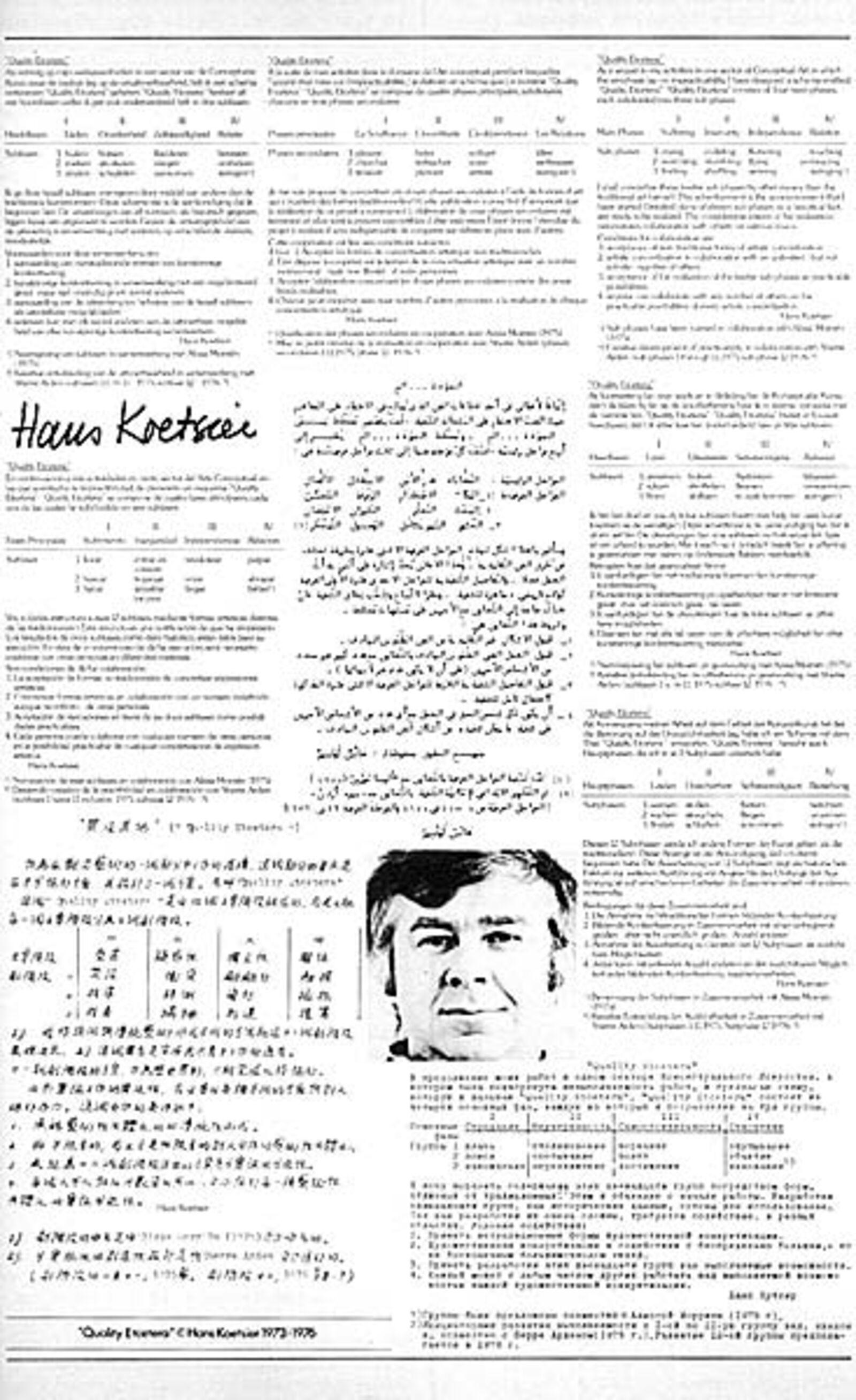Hans Koetsier "China-Japan – Japan-China"
01.01–31.12.1982
de Appel, Brouwersgracht 196, Amsterdam
de Appel, Brouwersgracht 196, Amsterdam

Advertisement Hans Koetsier (De Appel 3 (1983) 1, p. 25.)
‘In 1973 Hans Koetsier published four page-size advertisements, which led to the four main phases in the Quality Etcetera project: ‘You suffer terribly’, ‘Schwankend zwischen’, ‘One in one's oneness’, ‘I love you’. Collaboration with Alissa Morriën on the twelve sub-phases, with Sherre Arden on the creative development of the feasibility of the project. The China-Japan - Japan-China project, for which De Appel is intermediary, continues the realization of main phase I, sub-phase 3 of Quality Etcetera. In the China-Japan - Japan-China project the Chinese Peking opera The White-Haired Girl serves as an instrument for the collection of opinions held by people in Japan and China concerning their own and each other's culture - opinions that would never be directly and certainly not publicly exchanged, partly because of Japan's aggressive role in 20th-century history, a deeply rooted arrogance (Japan), and suspicion (China). The Japanese respondents are asked to comment on the libretto of the opera and the Chinese are asked for reactions to those comments. Koetsier's role is that of initiator. De Appel was invited by him to act as intermediary and producer, in establishing contacts with a variety of people in both countries and in collecting their comments. Koetsier - as artist, not sociologist, politician or philosopher of culture conducts his research with the assistance of De Appel; the communication that is induced aims to extend beyond the field of art. The form Koetsier has chosen for the inventarisation of the opinions and ideas is deliberately attuned to the Japanese concept of wrapping, which besides manifesting itself in boxes and envelopes is especially evident in the use of metaphors and symbols in language. The comments on the opera serve as a foil for comments on China and the Chinese. Consequently the Chinese respondents are not requested to comment upon their opera but to react to the Japanese comments; a response is thus elicited concerning Japan and the Japanese people.
The phases of the project are:
I Locating the Chinese, Japanese and English versions of the libretto of the opera
II Collecting comments of Japanese respondents by personal visits to Japan and with the aid of a Japanese contact, interpreter/journalist Kazue Kobata
III Translation of the Japanese comments into Chinese, English and Dutch
IV Collection of Chinese reactions by personal visits to China and with the aid of a Chinese contact
V Translation of the Chinese comments into Japanese, English and Dutch
VI Presentation of all texts in book-form or otherwise [in 1986 the book China-Japan - Japan-China Projekt was edited by Edna van Duyn].’
(Josine van Droffelaar, ‘Hans Koetsier. China-Japan - Japan-China project’, De Appel, 3 (1983) 1, pp. 24, 25.)